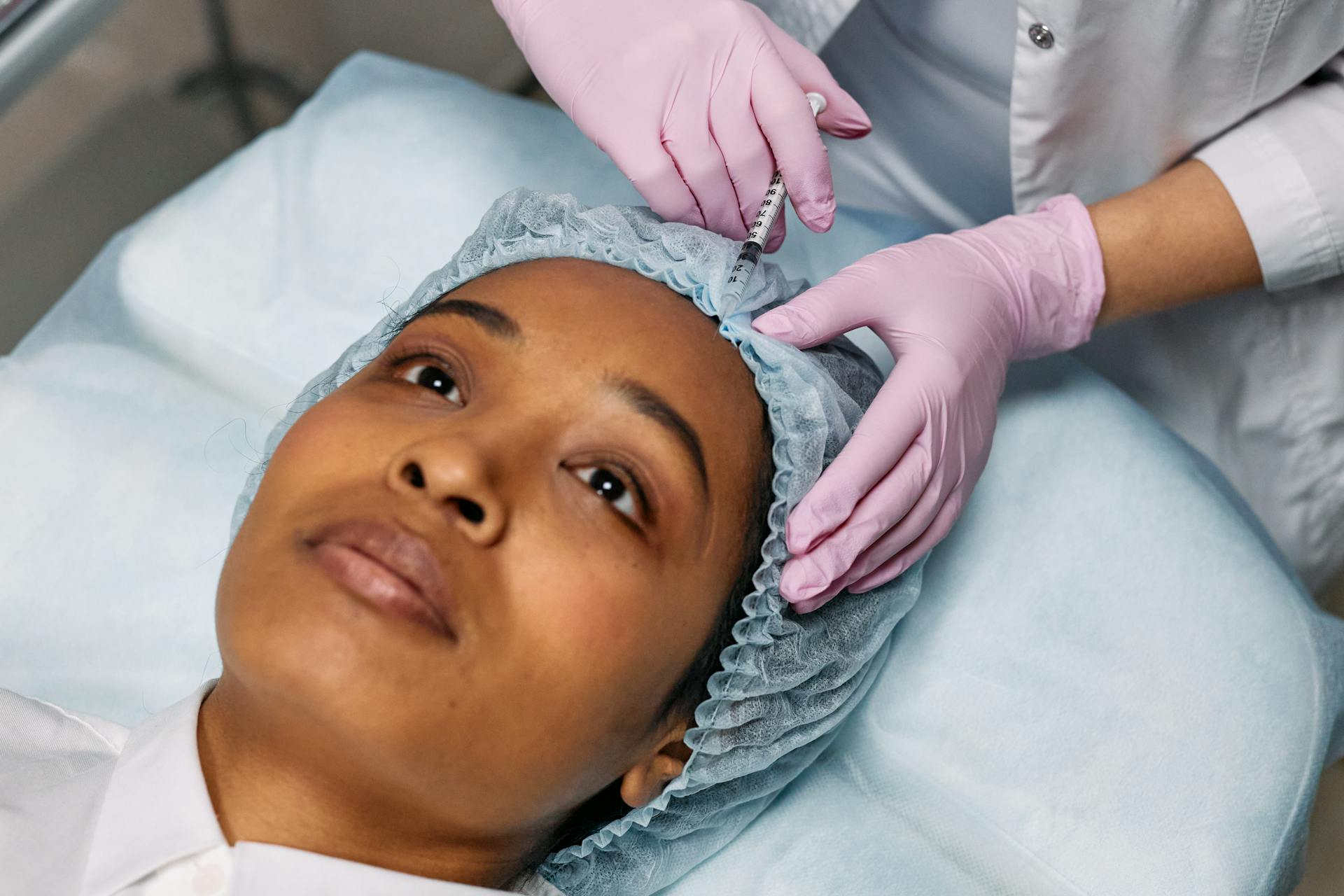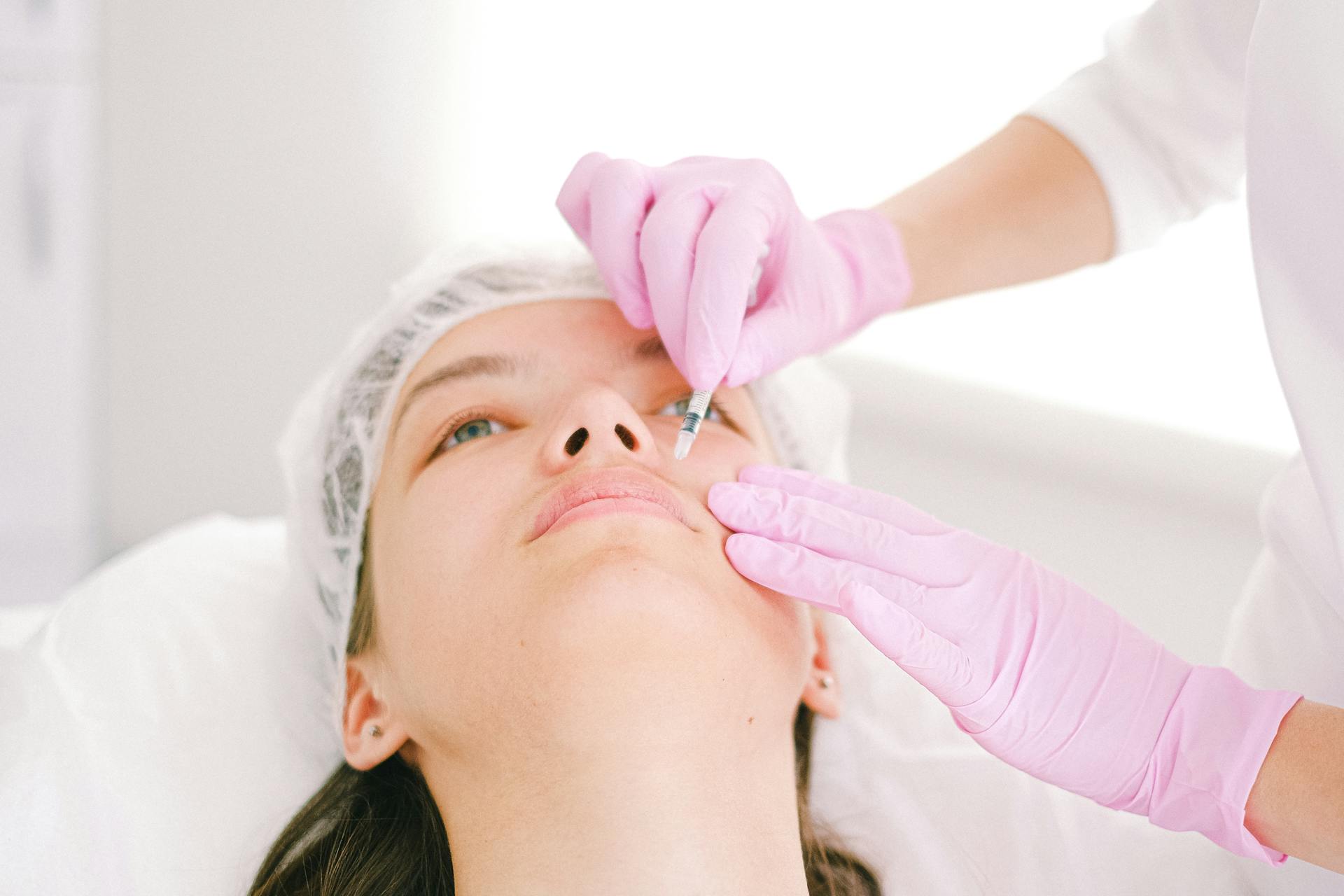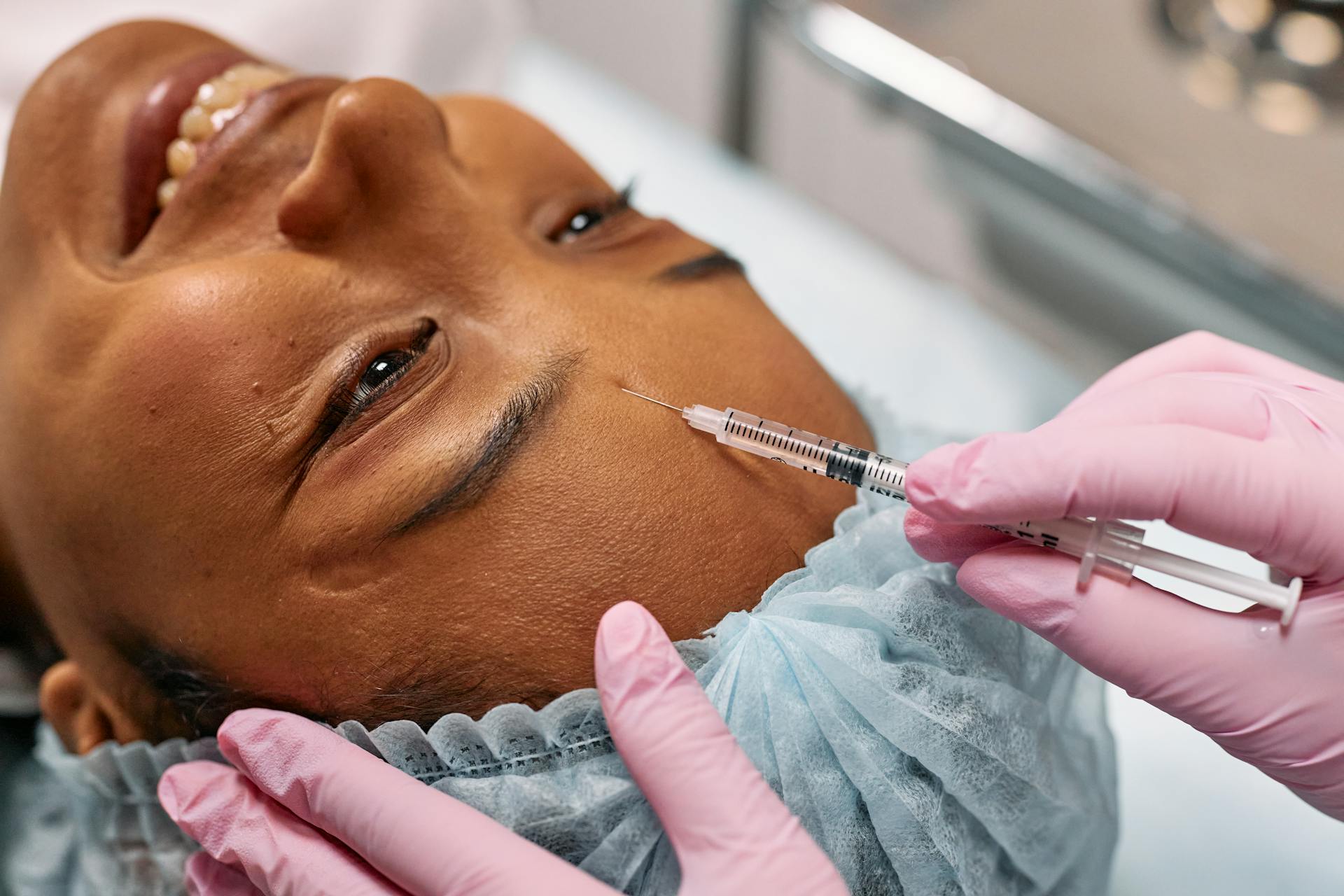
Botox is a popular cosmetic treatment that can help smooth out wrinkles. The active ingredient in Botox is botulinum toxin, which is a type of toxin produced by the bacterium Clostridium botulinum. When injected in small amounts into specific muscles, Botox can temporarily paralyze those muscles, resulting in a smoothing of the overlying skin.
Botox injections are typically given every three to six months. The amount of time between injections will vary depending on the individual's needs and results. Some people may need more frequent injections to maintain their results, while others may be able to space their injections out further.
The number of injections needed will also vary from person to person. Most people will need between four and eight injections per treatment session. The exact number will depend on the size and number of wrinkles being treated.
Botox injections are considered safe when performed by a qualified medical professional. The most common side effects are temporary and mild, such as bruising, redness, and swelling at the injection site. More serious side effects are rare, but can include difficulty swallowing or breathing and muscle weakness.
If you are considering getting Botox injections, be sure to consult with a qualified medical professional to ensure that the treatment is right for you.
Expand your knowledge: How Often Do People Get Botox?
How much do botox injections cost?
The average cost of botox is about $500. However, the cost can vary depending on the area being treated, the amount of botox being used, and the provider. For example, botox for crow's feet may cost around $300, while botox for forehead wrinkles may cost around $700.
Are there any side effects of botox injections?
There are a number of potential side effects of botox injections. The most common side effects are temporary and include redness, bruising, swelling, and tenderness at the injection site. More serious side effects are rare, but can include allergic reactions, inflammation, infections, and nerve damage. If you experience any side effects after receiving botox injections, it is important to contact your doctor immediately.
What are the benefits of botox injections?
Most people know of botox as a cosmetic treatment used to reduce wrinkles, but it has a number of other potential uses as well. Botox is a neurotoxin produced by the bacterium Clostridium botulinum. When injected in small amounts, it can temporarily paralyze muscles, which is why it is often used to cosmetically enhance facial features such as reducing wrinkles and fine lines.
There are also a number of medical uses for botox injections. One of the most common is for the treatment of migraines. Botox injections can help to reduce the frequency and severity of migraines by paralyzing the muscles that cause the pain. Botox is also used to treat conditions such as blepharospasm (uncontrollable blinking), strabismus (crossed eyes), and hyperhidrosis (excessive sweating).
In addition to its cosmetic and medical uses, botox injections can also be used for research purposes. For example, botox injections have been used in studies investigating the relationship between facial expressions and emotions. By temporarily paralyzing facial muscles, researchers have been able to investigate what role they play in the experience and perception of emotions.
Overall, botox injections have a number of potential uses, both cosmetic and medical. They can be used to enhance facial features, treat conditions such as migraines and blepharospasm, and even help researchers learn more about the role of facial expressions in emotions.
On a similar theme: Can I Get a Facial after Botox?
How long does it take for botox injections to take effect?
It usually takes two to four days for botox injections to take effect. However, some people may see results as early as one day after injection. The full effects of botox usually peak within two weeks.
Can you get botox injections while pregnant?
There is no real evidence that botox is harmful to a developing fetus, but since it is a relatively new procedure, not much is known about the long-term effects. Because of this, many doctors err on the side of caution and recommend avoiding botox injections during pregnancy.
The main ingredient in botox is botulinum toxin, which is a neurotoxin that can be deadly in large doses. However, when used in small amounts for medical purposes, it is considered safe. There is no evidence that the small amount of botulinum toxin used in botox injections is harmful to a developing fetus.
However, since botox is a relatively new procedure, not much is known about the long-term effects. Because of this, many doctors err on the side of caution and recommend avoiding botox injections during pregnancy.
If you are considering getting botox injections while pregnant, you should speak with your doctor to weigh the risks and benefits.
Can you get botox injections while breastfeeding?
There are conflicting opinions about whether or not you can get botox injections while breastfeeding. Some say that because botox is a nerve toxin, it can be transferred to the baby through breast milk and potentially cause health problems. Others argue that because botox is a very diluted form of the toxin, it is unlikely to cause any harm to the baby. Ultimately, the decision whether or not to get botox injections while breastfeeding should be made on a case-by-case basis and after consulting with a healthcare professional.
If you are considering getting botox injections while breastfeeding, it is important to understand both the risks and the benefits. On the one hand, botox can help to reduce the appearance of wrinkles and can give the face a more youthful appearance. Additionally, botox injections can help to reduce sweating, which can be a particular issue for breastfeeding mothers. However, as mentioned above, there is a risk that the botox toxin could be transferred to the baby through breast milk. Additionally, botox injections are not without side effects, which can include soreness, bruising, and headaches.
It is also important to keep in mind that there is no evidence that botox injections are 100% effective. In other words, there is a chance that you could get the injections and still have wrinkles or other signs of aging. As with any decision regarding your health, getting botox injections while breastfeeding should only be done after careful consideration and consultation with a healthcare professional.
Worth a look: Can I Get Fired for Getting a Dui?
How often do you need to get botox injections to maintain results?
The number of times you need to get botox injections to maintain your results depends on the individual. Some people see results that last for several months, while others may only last a few weeks. There are many factors that can affect how long your results last, including the amount of botox injected, the location of the injection, the muscle activity in the treated area, and your individual metabolism.
Botox is a neurotoxin that temporarily paralyzes the muscles it is injected into. It works by blocking the release of a chemical called acetylcholine, which is responsible for muscle contraction. When the muscles can't contract, they can't form wrinkles.
The effects of botox typically last for four to six months. However, the muscle activity in the treated area will gradually return over time, so you will need to get touch-ups every few months to maintain your results.
If you are considering getting botox injections, it is important to consult with a board-certified dermatologist or plastic surgeon who has experience with this procedure. They will be able to assess your individual needs and recommend the best treatment plan for you.
Explore further: How Often Do You Need Botox?
Is there anything you should avoid after getting botox injections?
Botox is a medication that is injected into the muscles to temporarily improve the appearance of wrinkles. It is important to avoid certain activities after getting botox injections to allow the medication to work properly. Avoiding these activities will help prevent the formation of new wrinkles and help the existing wrinkles to fade.
Some of the activities that should be avoided after getting botox injections include: touching or massaging the treated area, strenuous activity, exposure to sunlight or heat, alcohol, and sleeping on your stomach. Touching or massaging the treated area can cause the botox to spread to other muscles, which can cause new wrinkles to form. Strenuous activity can also cause new wrinkles to form, as well as cause the existing wrinkles to become more pronounced. Exposure to sunlight or heat can cause the botox to break down and become less effective. Alcohol can also cause the botox to break down and should therefore be avoided. Sleeping on your stomach can cause the botox to migrate to other muscles, which can cause new wrinkles to form.
If you are unsure about whether or not you should avoid a certain activity after getting botox injections, it is best to consult with your doctor. They will be able to advise you on what activities to avoid based on your individual case.
You might like: When to Start Getting Botox?
Frequently Asked Questions
Can I get Botox every 2 months?
There is no definitive answer as to whether or not you can get Botox every two months, as the frequency of treatment will depend on a variety of factors, such as your medical history, skin type and facial anatomy. Your cosmetic treatment provider can create a suitable treatment schedule for you.
How long should you wait between Botox injections?
Doctors usually recommend waiting at least 12 weeks between Botox injections, in order to see the best results.
How often is too often to get Botox?
Botox can be a great tool for treating various conditions, including wrinkles and frown lines. However, as with any prescription medication or cosmetic procedure, too much Botox may result in unwanted side effects. If you are considering getting Botox to reduce wrinkles or lines, it is important to discuss the treatment plan with your doctor. They will provide guidance on how often the Botox injections should be given and what risks may accompany too frequent treatments.
What happens if you get Botox too often?
If you get Botox too often, your muscles will start to weaken and the effects of the injections will wear off. This can cause temporary or permanent changes to your face, including an increase in wrinkles and drooping eyelids.
Can Botox wear off in 2 months?
The effects of Botox can last anywhere from 2-6 months, but the average result lasts about 3-4 months. This is because your body makes new neurotransmitters all the time and, as a result, the “blocking” effect of Botox gradually wears off as these chemicals start circulating in your body again.
Featured Images: pexels.com


